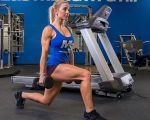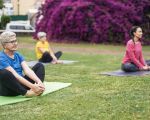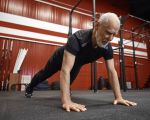- 1-Understanding-the-basics-of-fitness-routine
- 2-Setting-realistic-goals-for-beginners
- 3-Designing-your-beginner-fitness-routine
- 4-Staying-motivated-and-tracking-progress
- 5-Expert-advice-and-resources-from-fitness
1. Understanding the Basics of Fitness Routine
Starting a fitness journey can be exciting yet overwhelming, especially when you’re wondering how to set up a beginner fitness routine that is effective and sustainable. A beginner fitness routine is essentially a structured plan that balances cardiovascular exercises, strength training, flexibility, and rest to gradually improve overall health and fitness.
Understanding these components and their role in your routine helps you build a strong foundation and avoid common pitfalls like injury or burnout.
2. Setting Realistic Goals for Beginners
Before jumping into exercises, it's crucial to set realistic and measurable goals. Whether your aim is weight loss, muscle gain, improved endurance, or simply adopting a healthier lifestyle, clearly defined objectives keep you focused and motivated.
2.1 Short-Term and Long-Term Goals
Start with achievable short-term goals such as exercising three times a week or mastering basic movements. Combine these with long-term aspirations like running a 5K or increasing strength, which provide ongoing motivation.
2.2 Tracking Your Progress
Using journals, apps, or wearable technology can help you monitor improvements and adjust your routine accordingly, reinforcing commitment and celebrating milestones.
3. Designing Your Beginner Fitness Routine
An effective beginner fitness routine incorporates variety, progression, and rest to ensure balanced development and injury prevention.
3.1 Cardiovascular Exercises
Activities like walking, cycling, or swimming improve heart health and endurance. Begin with 20-30 minutes sessions, 3-4 times weekly, adjusting intensity as fitness improves.
3.2 Strength Training
Introduce bodyweight exercises such as squats, push-ups, and lunges to build strength. Aim for two sessions per week, focusing on proper form to reduce injury risk.
3.3 Flexibility and Mobility
Incorporate stretching or yoga to enhance flexibility and reduce muscle tension. These activities support recovery and overall movement quality.
3.4 Rest and Recovery
Allowing adequate rest days is essential for muscle repair and avoiding overtraining, which can derail progress.
4. Staying Motivated and Tracking Progress
Consistency is the cornerstone of fitness success. Keeping motivation high can be challenging but is achievable with the right mindset and tools.
4.1 Finding Enjoyable Activities
Choose exercises you enjoy to make workouts feel less like chores. Whether dancing, hiking, or group classes, enjoyment increases adherence.
4.2 Building a Support System
Engage friends, family, or online communities for encouragement and accountability, which can significantly boost your commitment.
4.3 Celebrating Small Wins
Recognize and reward progress, no matter how small, to build confidence and sustain momentum.
5. Expert Advice and Resources from Fitness
Embarking on a fitness journey is easier and safer when supported by expert guidance. Fitness offers a wide range of resources including workout plans, nutritional advice, and motivational content designed specifically for beginners.
For personalized recommendations and high-quality fitness gear, Fitness is your trusted partner to help you establish and maintain a beginner fitness routine that fits your lifestyle and goals.








